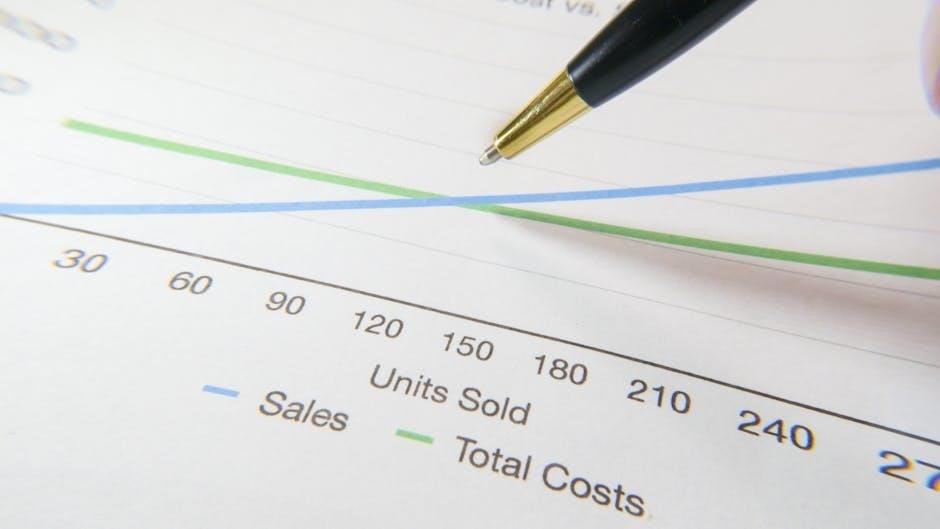120 recettes anti inflammatoire pdf
An anti-inflammatory diet focuses on consuming nutrient-rich foods to reduce chronic inflammation, promoting overall health and well-being. It emphasizes whole, unprocessed ingredients like fruits, vegetables, omega-3s, and spices.
What is an Anti-Inflammatory Diet?
An anti-inflammatory diet focuses on consuming foods that help reduce chronic inflammation in the body. It emphasizes whole, unprocessed ingredients like fruits, vegetables, omega-3 rich foods, spices such as turmeric and ginger, legumes, and whole grains. This approach avoids processed foods, sugary drinks, and unhealthy fats, aiming to promote balance and support overall health.
Benefits of Incorporating Anti-Inflammatory Foods
Incorporating anti-inflammatory foods can significantly reduce chronic inflammation, improving overall well-being. These foods support digestive health, boost energy levels, and enhance skin clarity. By prioritizing nutrient-rich ingredients, individuals may experience enhanced immune function and a lower risk of chronic diseases, promoting long-term vitality and a balanced lifestyle.
The Best Foods for Reducing Inflammation
Fruits, vegetables, omega-3-rich fish, whole grains, and spices like turmeric and ginger are among the top anti-inflammatory foods. Legumes also play a key role in reducing inflammation.
Fruits and Vegetables Rich in Antioxidants
Berries, leafy greens, and cruciferous vegetables are packed with antioxidants that fight free radicals, reducing inflammation. Brightly colored fruits like strawberries and blueberries, along with vegetables like broccoli and spinach, are excellent choices. These foods help protect cells from damage and promote overall health, making them a cornerstone of an anti-inflammatory diet.
Omega-3 Rich Foods and Whole Grains
Omega-3 rich foods like fatty fish (salmon, mackerel) and flaxseeds reduce inflammation effectively. Whole grains such as quinoa, brown rice, and oats provide sustained energy and fiber, supporting gut health. These foods are essential for a balanced diet, offering anti-inflammatory benefits that help combat chronic conditions like heart disease and arthritis while promoting overall well-being;
Key Ingredients in Anti-Inflammatory Recipes
Essential ingredients include turmeric, ginger, and cinnamon for their anti-inflammatory properties, along with legumes and whole grains for sustained nutrition and digestive health benefits.
The Power of Spices: Turmeric, Ginger, and More
Turmeric, rich in curcumin, is a potent anti-inflammatory agent, while ginger aids digestion and reduces inflammation. Both spices enhance flavor and health benefits in soups, stir-fries, and smoothies. Pairing turmeric with black pepper boosts absorption. These versatile ingredients are essential in anti-inflammatory recipes, offering natural ways to combat inflammation and promote overall wellness.
Legumes and Their Role in Reducing Inflammation
Legumes are rich in antioxidants, fiber, and protein, making them a cornerstone of anti-inflammatory diets. Lentils, chickpeas, and black beans are particularly effective at reducing inflammation. They support gut health and provide essential nutrients. Incorporating legumes into meals like casseroles and stews enhances both flavor and nutritional benefits, promoting a balanced and inflammation-reducing lifestyle.

Breakfast Recipes to Start Your Day Right
Begin your day with nutrient-packed breakfasts like chia seed pudding with almond milk and berries, or avocado toast with eggs and cheese, promoting energy and inflammation reduction.
Chia Seed Pudding with Almond Milk and Berries
This recipe combines chia seeds, rich in omega-3s and fiber, with almond milk and fresh berries. It’s a nutrient-dense breakfast that fights inflammation and supports digestion; Mix chia seeds with almond milk, let it sit overnight, and top with berries. Perfect for a quick, healthy start to your day, packed with antioxidants and anti-inflammatory properties.
Avocado Toast with Eggs and Cheese
This recipe pairs creamy avocado with eggs and cheese on whole-grain toast for a balanced breakfast. Avocados provide healthy fats, while eggs offer protein and cheese adds calcium. The combination supports heart health and reduces inflammation. Drizzle with olive oil and season with salt and pepper for added flavor. A nutritious start to your day, packed with anti-inflammatory benefits.
Healthy Lunch Ideas
Grilled chicken with Mediterranean vegetables and quinoa casserole are nutrient-rich options that help reduce inflammation. These meals combine protein, fiber, and antioxidants for a balanced, satisfying lunch.
Grilled Chicken with Mediterranean Vegetables
Grilled chicken paired with Mediterranean vegetables like eggplant, zucchini, and red bell peppers creates a flavorful and nutritious meal. These vegetables are rich in antioxidants and fiber, helping to reduce inflammation. The lean protein from the chicken supports muscle health, while olive oil adds healthy fats. This dish is simple to prepare and perfect for a balanced lunch.
Quinoa and Black Bean Casserole
A hearty and nutritious dish, quinoa and black bean casserole combines the protein-rich benefits of quinoa with the fiber and antioxidants of black beans. Spices like cumin and paprika enhance flavor while contributing anti-inflammatory properties. This recipe is easy to prepare, making it an excellent option for a balanced and satisfying lunch that supports overall well-being and reduces inflammation.

Nutritious Dinner Recipes
Soba noodles with scallops and broccoli, and roasted chicken with Mediterranean vegetables offer delicious and anti-inflammatory dinner options packed with nutrients.
Baked Sweet Potatoes with Mushrooms and Broccoli
This nutritious dinner recipe combines roasted sweet potatoes, mushrooms, and broccoli, offering a rich source of vitamins A, C, and K, along with antioxidants and fiber. The natural sweetness of sweet potatoes pairs perfectly with the earthy flavors of mushrooms and the crisp texture of broccoli. Season with herbs like thyme or rosemary for added anti-inflammatory benefits. A simple yet flavorful meal that supports overall health and reduces inflammation.
Soba Noodles with Scallops and Broccolini
This recipe combines soba noodles, scallops, and broccolini for a nutrient-packed meal. Soba noodles provide whole-grain fiber, while scallops offer lean protein and omega-3s. Broccolini adds vitamins C and K, along with antioxidants. Lightly cooked in a garlic-ginger sauce, this dish supports anti-inflammatory benefits. Turmeric or chili flakes can enhance flavor and inflammation-fighting properties, making it a balanced and healthy dinner option.

Snacks and Desserts with Anti-Inflammatory Properties
Snacks and desserts can be nutritious and anti-inflammatory. Opt for fruit and nut combinations, dark chocolate, or yogurt. Smoothies and soups also make great options for quick, healthy treats.
Fruit and Nut Combinations for Quick Snacks
Fruit and nut combinations are ideal for quick, anti-inflammatory snacks. Pair fresh berries with almonds, apples with walnuts, or bananas with pecans. These combos offer antioxidants, fiber, and healthy fats, reducing inflammation while providing energy. For convenience, pre-portion mixed nuts with dried fruits like cranberries or apricots. These snacks are easy, nutritious, and perfect for on-the-go meals.
Anti-Inflammatory Smoothies and Soups
Anti-inflammatory smoothies and soups are versatile and nourishing options. Smoothies can blend berries, spinach, turmeric, and ginger for a potent antioxidant boost. Soups, like butternut squash or lentil soup, offer comforting, inflammation-fighting benefits. Both options are rich in vitamins, minerals, and anti-inflammatory compounds, making them ideal for promoting health and reducing inflammation effectively.

Tips for Meal Planning and Grocery Shopping
Plan meals around seasonal, anti-inflammatory ingredients like fruits, vegetables, and whole grains. Create a grocery list with nutrient-rich items to ensure daily incorporation of anti-inflammatory foods.
How to Incorporate Anti-Inflammatory Foods Daily
Start your day with anti-inflammatory ingredients like berries and nuts. Incorporate leafy greens, omega-3 rich foods, and spices like turmeric into meals. Plan balanced dishes using whole grains and legumes, ensuring variety and nutrient density. Substitute inflammatory foods with healthier alternatives to create a sustainable and beneficial diet.
Smart Grocery Shopping for Nutrient-Rich Ingredients
Plan meals ahead to focus on fresh produce, whole grains, and lean proteins. Prioritize seasonal fruits and vegetables for optimal flavor and nutrition. Incorporate omega-3 sources like fish and flaxseeds, and stock up on anti-inflammatory spices like turmeric and ginger. Read labels to avoid processed foods and opt for nutrient-dense alternatives to support your health goals.
The Role of Lifestyle in Reducing Inflammation
Lifestyle plays a crucial role in reducing inflammation. Regular exercise, staying hydrated, managing stress, and ensuring quality sleep are essential for maintaining a balanced, anti-inflammatory lifestyle.
Exercise and Stress Management
Regular physical activity, such as yoga, swimming, or brisk walking, helps reduce inflammation by improving circulation and strengthening the immune system. Managing stress through mindfulness, meditation, or deep-breathing exercises can also lower inflammatory markers. Combining these practices with adequate hydration and quality sleep enhances their anti-inflammatory effects, promoting a balanced and healthy lifestyle.
Hydration and Sleep Quality
Staying hydrated is essential for flushing toxins and reducing inflammation. Aim for at least 8 glasses of water daily, incorporating herbal teas or coconut water for added benefits. Prioritizing sleep is equally vital, as poor sleep can trigger inflammatory responses. Strive for 7-9 hours of quality sleep nightly, creating a calming bedtime routine to enhance restfulness and overall well-being.
The Benefits of a Sustained Anti-Inflammatory Diet
A sustained anti-inflammatory diet can lead to improved heart health, enhanced digestion, and increased energy levels, while reducing the risk of chronic diseases over time.
Long-Term Health Improvements
A sustained anti-inflammatory diet can significantly reduce chronic inflammation, improving overall health. It supports heart health by lowering cholesterol and blood pressure, enhances digestion, and boosts immune function. Regular consumption of nutrient-rich foods may also reduce the risk of chronic diseases, such as diabetes and certain cancers, promoting longevity and vitality over time.
Enhanced Overall Well-Being
An anti-inflammatory diet not only reduces inflammation but also enhances overall well-being by improving digestion, boosting energy levels, and supporting mental clarity. It promotes healthier skin, reduces joint pain, and may even improve mood. By incorporating nutrient-rich foods, individuals can achieve a balanced lifestyle, leading to greater vitality and a better quality of life over time.
Embracing an anti-inflammatory diet is a powerful step toward better health. Start your journey with the 120 recipes provided, exploring delicious and nutritious options. Continue learning, experimenting, and prioritizing your well-being for long-term benefits and a vibrant life.
Starting Your Anti-Inflammatory Journey
Begin by incorporating simple, nutrient-rich choices into your daily meals. Focus on whole foods like fruits, vegetables, omega-3s, and spices. Meal prepping and gradual changes can make the transition easier. Explore the 120 recipes for inspiration and guidance. Remember, small steps today lead to long-term health benefits and a more vibrant life. Start with one recipe and build your way forward confidently!
Exploring More Recipes and Resources
Expand your culinary repertoire with resources like “120 Recettes Anti-Inflammatoires,” offering diverse and nutritious meal ideas. Visit websites, cookbooks, or eBooks for inspiration. Experiment with global flavors and seasonal ingredients to keep your diet engaging. Continuous exploration ensures variety and sustains your commitment to an anti-inflammatory lifestyle, fostering creativity and long-term success in your health journey.
